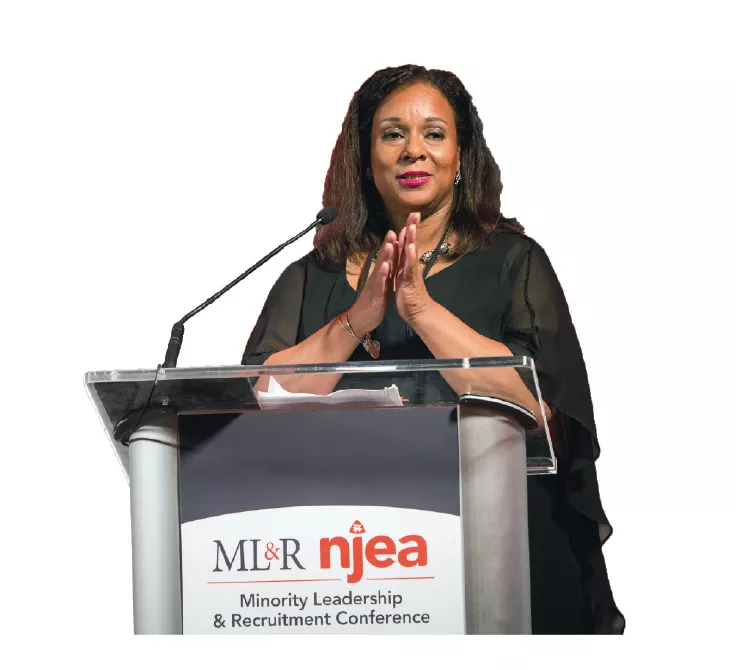NEA: What inspired you to promote restorative practices in your school? (Note: As opposed to punishing students with suspensions or expulsions, restorative practices aim to prevent student discipline issues. They include the use of informal and formal processes to encourage trust, mutual understanding, and shared values between students and their peers and with school staff.)
JO: The inspiration to learn more about restorative practices came from my instructional leader and assistant principal, Barbara Coleman. I agreed to participate in her dissertation research not knowing that I would ultimately develop an affinity and love for restorative practices, too.
I feel that the use of restorative practices is so apropos and timely, especially in my school. There has been a noticable decrease in suspensions in particular since we’ve introduced restorative practices. Research has shown that school suspensions are not an effective means for dealing with student misbehavior.
What’s next for you as an activist?
Anti-racist organizing and activism. I was fortunate to attend an Undoing Racism workshop recently. As a result, I began working with a group of New Jersey Education Association (NJEA) members who formed the South Jersey Anti-Racist Education Workers. Right now, we gather to support each other’s interest in and commitment to organizing.
In addition to that work, I will continue my advocacy work as a teacher consultant with the Philadelphia Writing Project, an affliate of the National Writing Project. I am cultivating my understanding of what it means to be a teacher, activist, and leader, as well as the importance of using my words to create change. Teachers can use their writing as a tool and catalyst for social justice and educational change.
Lastly, I plan to continue my work as an advocate for special needs students, a cause that is near and dear to my heart as I am a parent of an exceptional child.
Why is the promotion of social justice education so important?
The promotion of social justice education is so important because racial and social injustice permeates every aspect of our lives, no matter our race, class, social status, or gender. We are all dehu- manized by virtue of living in an unjust society.
We’ve been to the mountaintop, seen the promised land and are still wandering in the wilderness. We have not arrived yet. There is still so much work to be done.
How have you been involved in your association?
I have been actively involved in the Willingboro Education Association for several years, first serving as a building representative and now currently as an NJEA Bolivar Graham Practicing Apprentice.
Make Your Voice Heard in Three Easy Ways
Speaking out at school board meetings, legislative assemblies, and other public forums on behalf of students and schools is not about being a super-confident, polished speaker. It’s about being yourself and finding your voice.
The more educators who are willing to step outside their comfort zones and into the arena of public speaking, the better it will be for public education. No one can articulate education issues better than educators.
You can own the room, promote your perspective as an educator and boost your confidence as a public speaker in three easy ways.
Do Your homework
Research the issue and target your remarks to the policymakers who have the authority to make changes. Learn all that you can, write down everything that supports your position, and study the material well.
Shape, structure, and finesse your message
After gathering your facts, figures, and anecdotal evidence (Do you have a personal story? Tell it.) Esure your presentation has a beginning, middle and end, or another outline that is easy for you to follow. The day before the presentation, practice reading your remarks as if your audience were present.
Respect allotted time restrictions
Find out how much time the agenda allots to guest speakers. Time and rehearse yourself beforehand to ensure you remain within the timeframe. This is also an opportunity to streamline your remarks, delete words that are difficult to pronounce, and sharpen your message.



